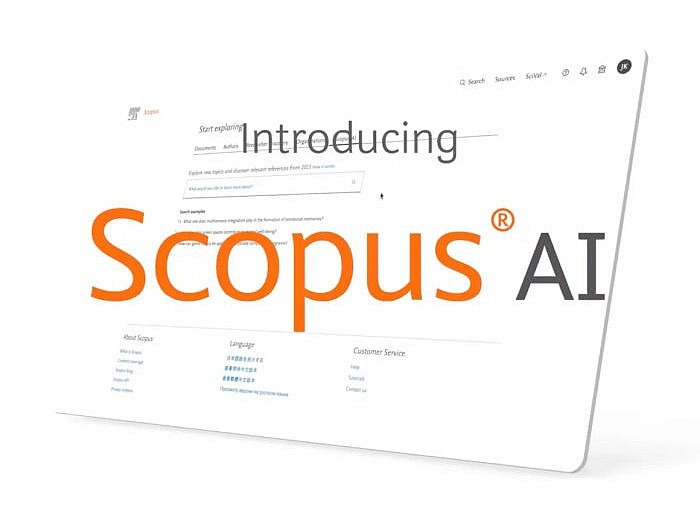For a trial period from 19th February until 15th March, the University Library Graz is offering the chance to use the Scopus AI tool campus-wide. Members of the University of Graz can also access the tool remotely via VPN. A [Scopus AI] tab will appear on the Scopus search page during the trial period.
About Scopus AI
Users can enter fully formulated questions directly into the Scopus AI search field. Scopus AI can process these natural language queries and match them through vector calculation with the most relevant article abstracts from the last 10 years, as determined by the AI.
It generates a results list containing the following:
- Summary: a simplified summary of the results (including references used)
- Expanded summary: a somewhat more detailed summary of the results (including references used) - Elsevier’s in-house RAG fusion technology even predicts what the next question will be
- References: list of references used for the summary and expanded summary
- Concept map: a graphic representation of the keywords related to the question, revealing correlations and insights
- Foundational papers: the most influential articles that actually answer the question according to AI (taking into account not only the number of citations but also the relevance of the content)
- Topic experts: experts (authors) in the most important subject areas with a summary of their work and contributions to science
- Deeper questions: questions that, for example, reveal new perspectives or contain similar model names
Further information:
If you have any questions, please contact ub.zeitschriften(at)uni-graz.at.
